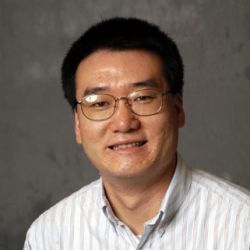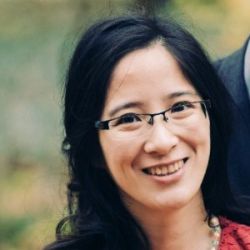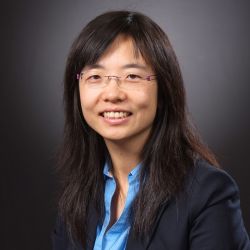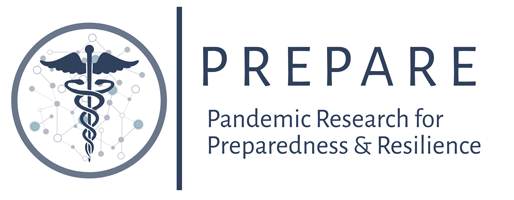Members
PREPARE is a global network of passionate members who drive forward the scientific and public health advances necessary to ready us for the next pandemic. Join us to grow your network, find and share upcoming events, and participate in our workshops!
Enter keywords to search the member names or info cards:
Simon Levin

- James S. McDonnell Distinguished University Professor in Ecology and Evolutionary Biology
Simon A. Levin received his B.A. from Johns Hopkins University and his Ph.D. in Mathematics from the University of Maryland. At Cornell University 1965-1992, he was Chair of the Section of Ecology and Systematics, and then Director of the Ecosystems Research Center, the Center for Environmental Research and the Program on Theoretical and Computational Biology, as well as Charles A. Alexander Professor of Biological Sciences (1985-1992). Since 1992, he has been at Princeton University where he is currently James S. McDonnell Distinguished University Professor in Ecology and Evolutionary Biology and Director of the Center for BioComplexity. He retains an Adjunct Professorship at Cornell, where he still has many valued colleagues, was a Distinguished Visiting Professor at UC Irvine from 2007-2016. He is currently a Distinguished Visiting Professor at Arizona State University.
His research interests are in understanding how macroscopic patterns and processes are maintained at the level of ecosystems and the biosphere, in terms of ecological and evolutionary mechanisms that operate primarily at the level of organisms; in infectious diseases; and in the interface between basic and applied ecology.
Levin is a Fellow of the American Academy of Arts and Sciences and the American Association for the Advancement of Science, a Member of the National Academy of Sciences and the American Philosophical Society, and a Foreign Member of the Istituto Veneto and the Istituto Lombardo. He is a University Fellow of Resources for the Future, a Fellow of the Beijer Institute of Ecological Economics, a Fellow of the Society for Industrial and Applied Mathematics, a Fellow of the Society for Mathematical Biology, a Fellow of the American Mathematical Association, a Distinguished Fellow of the Luohan Academy, and a Fellow of the Academia Europaea. He also has received honorary doctorates from Eastern Michigan University, Whittier College, Michigan State University, McMaster University, and the University of Victoria. He chaired the Governing Council for IIASA for more than five years and was Vice-Chair from 2009-2012. He has served on the Science Board of the Santa Fe Institute, which he co-chaired from 2007-2010. He is also Vice-Chair for Mathematics of the Committee of Concerned Scientists. Levin is a former President of the Ecological Society of America and the Society for Mathematical Biology, and a past Chair of the Board of the Beijer Institute of Ecological Economics.
He won the MacArthur Award (1988), Distinguished Service Citation (1998) and the Eminent Ecologist Award (2010) of the Ecological Society of America, the Okubo Award of the Society for Mathematical Biology and the Japanese Society for Theoretical Biology, and the Distinguished Scientist Award of the American Institute for Biological Sciences. He was honored with the Dr. A.H. Heineken Prize for Environmental Sciences by the Royal Netherlands Academy of Arts and Sciences (2004), the Kyoto Prize in Basic Sciences (2005) by the Inamori Foundation, and the Margalef Prize (2010) of the Government of Catalonia, the Luca Pacioli Prize from Ca’Foscari University of Venice, Italy, the Tyler Prize for Environmental Achievement (2014), the National Medal of Science (2014, announced 2015, awarded 2016), and the BBVA Foundation Frontiers of Knowledge Award in Ecology and Conservation Biology (2022).
Levin has mentored more than 100 graduate students and postdoctoral fellows and has published widely. He is the editor of the influential Princeton Guide to Ecology and the landmark Encyclopedia of Biodiversity.
Epidemiology and Public Health, Education, Training, and Workforce Development, Computational Biology and Bioinformatics, Social, Behavioral, Economic, and Governance
Ninghui Li

- Samuel D. Conte Professor of Computer Science
Ninghui Li is a Professor of Computer Science at Purdue University. He has been doing research in security and privacy, including data privacy, applied cryptography, access control, trust management, and human factors in security and privacy. He has published over 150 referred papers in these areas. His 2007 paper ``t-Closeness: Privacy Beyond k-Anonymity and l-Diversity'' recently received the ICDE 2017 Influential Paper award.
Prof. Li was elected Chair of the ACM Special Interest Group on Security, Audit, and Control (SIGSAC) in 2017. From 2013 to 2017, he served as SIGSAC's Vice Chair. He is on the editorial boards of ACM Transactions on Privacy and Security (TOPS), Journal of Computer Security (JCS), and ACM Transactions on Internet Technology (TOIT); and was on the editorial board of IEEE Transactions on Dependable and Secure Computing (TDSC) from 2011 to 2015 and the VLDB Journal from 2007 to 2013.
Prof. Li has served on the Program Committees of over 150 international conferences and workshops in computer security, databases, and data mining. In 2014 and 2015, he served as the Program Chair for the ACM Conference on Computer and Communications Security (CCS), ACM's flagship conference in the field of security and privacy.
Prof. Li's research has been supported by multiple NSF grants, including an NSF CAREER award in 2005. His research has also been supported by the Air Force Office of Scientific Research (AFOSR), Army Research Office (ARO), National Security Agency (NSA), IBM Research, Google, and Samsung. He collaborated with Dr. Bertino on NSF and AFOSR-funded projects.
Computational Biology and Bioinformatics, Surveillance & Contact Tracing, Computing & Data Infrastructure, and Privacy
Julie Liao

- Director of the Forum of Microbial Threats
Dr. Liao is a molecular microbiologist with experience in high-throughput antimicrobial discovery, vaccine development, and bacterial biofilm. She is currently the director of the Forum on Microbial Threats at the National Academies of Sciences, Engineering, and Medicine.
Epidemiology and Public Health
Yuhong Liu

- Associate Professor of Computer Engineering
Dr. Liu is an Associate Professor in the Department of Computer Engineering at Santa Clara University, received her B.S. and M.S. degrees from Beijing University of Posts and Telecommunications in 2004 and 2007 respectively, and her Ph.D. degree from the University of Rhode Island in 2012 under the supervision of Dr. Yan (Lindsay) Sun. She is the recipient of the 2019 Researcher of the Year Award at School of Engineering, Santa Clara University, and the 2013 University of Rhode Island Graduate School Excellence in Doctoral Research Award. Her research interests include trustworthy computing and cyber security of emerging applications, such as Internet-of-things, blockchain, and online social media. She has published over 60 papers in prestigious journals and peer-reviewed conferences. Her papers have been selected as the best paper at the IEEE International Conference on Social Computing 2010 (acceptance rate = 13%) and the 9th International Conference on Ubi-Media Computing (UMEDIA 2016).
She is actively contributing to professional societies including IEEE and APSIPA. She is a senior member of IEEE, and currently serving as the Chair of IEEE Computer Society STC Executive Committee Board, the Chair of the IEEE Computer Society Technical Meeting Request Committee, and IEEE Computer Society Distinguished Visitor(2021~2022). She has also served as an APSIPA Distinguish Lecturer, the secretary of the APSIPA U.S. Chapter, and a member of the Multimedia Security and Forensics (MSF) TC for Asia-Pacific Signal and Information Processing Association (APSIPA).
Infodemiology, Social Networks, and Scientific Communication, Surveillance & Contact Tracing, Computing & Data Infrastructure, and Privacy, Social, Behavioral, Economic, and Governance


